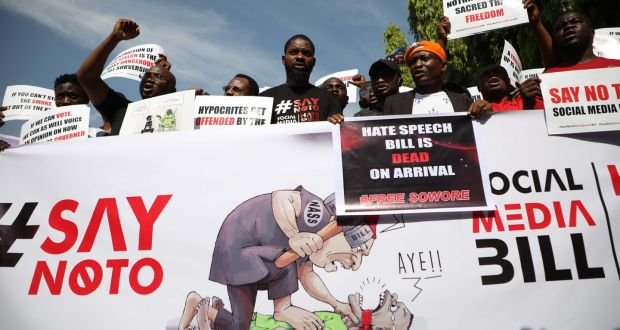The comment recently credited to the Minister of Information and Culture, Alhaji Lai Mohammed about the Social media bill in Nigeria has generated so many reactions on the social media platforms.
Also, many social media users have reacted to a viral video of a Lagos lawmaker, Desmond Eliot, who also proposed that the government should regulate social media.
Both the Minister and Lawmaker lent their voices to the proposed bill by the Nigerian Senate to place restrictions on social media and Nigeria’s Internet space.
Facts About The Social Media Bill In Nigeria
1. The Social Media Bill, officially titled “Protection from Internet Falsehoods and Manipulations and Other Related Matters Bill 2019 is sponsored by Senator Muhammad Sani Musa, a lawmaker representing Niger East Senatorial District.
2. The idea behind the introduction of the bill is to curb the spread of falsehood and fake news in Nigeria.
3. According to the bill, a person must not transmit a statement that is false or affect the security, public health, public safety, or public finance of Nigeria.
4. Also, a person must not spread the news that could affect Nigeria’s relationship with other countries, influence the outcome of an election to any office in a general election or cause hatred towards a person or group of persons.
5. Anyone guilty of any of the offences is liable to a fine of ₦300,000, 3 years imprisonment, or both (for an individual), and a fine not exceeding ₦10 million for corporate organisations, the same punishment applies to fake online accounts that transmit any of fake news.

6. The major contents of the bill have a lot in common with a bill passed by the Parliament of Singapore earlier in May 2019.
7. The social media bill is not exclusive to Nigeria as other African countries have been making moves to clamp down on social media and Internet activities in the country.
8. The bill gives law enforcement agents the power to arrest those who are found guilty of spreading false information online, also, the law enforcement department may direct the Nigerian Communications Commission, NCC to order the Internet access service provider to disable access by users in Nigeria to the online location.
9. The major institutions/individuals the social media bill directly targets include Radio/TV stations, Online/print newspapers, Journalists, On-air personalities (OAP), Website hosts, Bloggers, YouTube channels, Social media influencers, Internet service providers among others.
10. Targeting these institutions/individuals means access to information could be either controlled/doctored by the government at best or simply non-existent at worst.
Source: Techpoint

